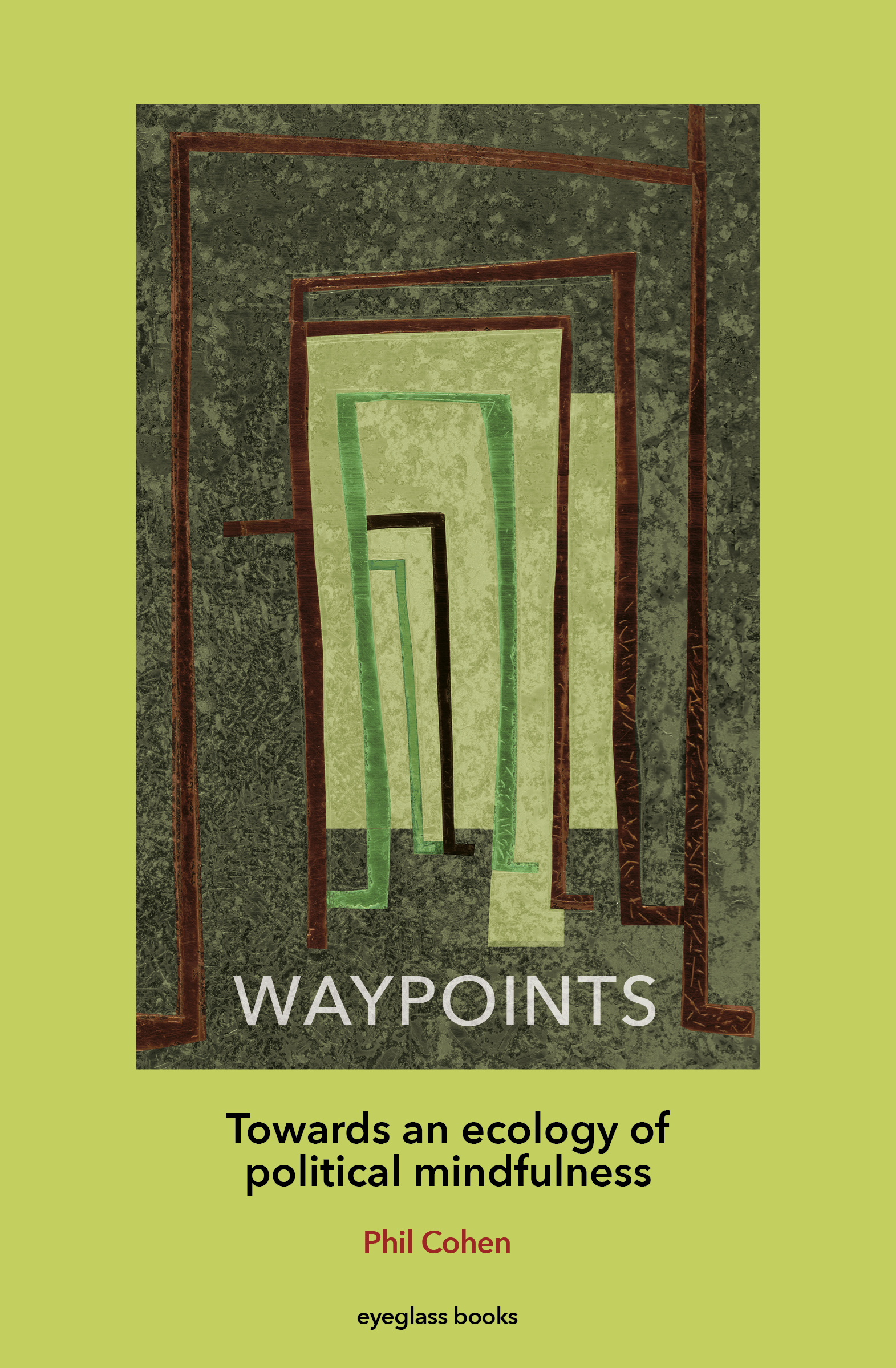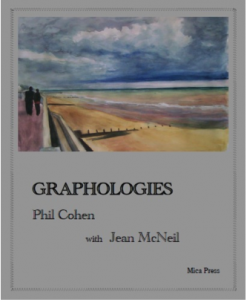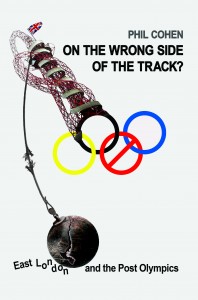Reflections on the labour leadership election
So, against all the odds, he did it. Jeremy Corbyn’s victory is already being claimed as an ‘insurgency’ on the scale of the SNP advance in Scotland, and driven by much the same popular discontent with austerity economics and ‘business as usual ‘ neo-liberal politics. The campaign’s success is being widely interpreted as representing a shift to the Left, not only in the labour movement but in the country, in the wake of the election defeat and also due to the fact that Corbyn was the only candidate not tainted by association with the New Labour regimes of Blair and Brown. But is our existing political geography with its Left, Right and Centre grounds adequate to locate the shifts that have occurred in our ideological landscape? Or is it the case that our received political maps no longer correspond to the new territories of affiliation that are emerging?
I have argued elsewhere that our political culture is characterised by a bi-polar structure of thought and feeling[i]; it oscillates between prophesies of doom and the new dawn, states of chronic depression and manic excitement, cenotaph and jubilee.This may be a subjective correlative of slump and boom economics but it is one which has its own momentum. Certainly the response to Labour’s election defeat seems to have followed this pattern, from initial shock and disbelief, through an all too brief period of critical introspection and mourning for what had been lost, giving way to a leadership contest in which different wings of the party blamed each other for abandoning core values and then, finally, the moment of transcendence with an upsurge of political will power affirming a new principle of hope embodied in its chosen leader.
But is there more to ‘Corbymania’ than wishful thinking? Is it just a manic denial of painful political realities? There are numerous examples of unbending optimism of the will clouding intellectual judgement and leading to magical thinking as a defence against the complexities and frustration involved in actual struggles. For example to propose to re-open the mines may work as a sentimental gesture but the skills and dispositions required for this to happen no longer exist in working class communities and a progressive energy policy to tackle global warming cannot possibly be built around fossil fuels.
But to swing to the opposite extreme is equally fatal. Unremitting pessimism of the intellect demoralises people and destroys their capacity to act. Anyone who has done time in a Leftist groupuscule will be familiar with this phenomenon. Every time the workers raise their banners high a great boot comes down from the sky and crushes their hopes, the said boot usually belonging to a corrupt trade union official or labour party bureaucrat who betrays the workers interests. There is an addictive form of Left miserabilism that actually welcomes defeats and hard time as signs that the Marxist analysis of capitalism’s totalising power is correct, and that only the ‘immiseration of the masses’ will lead to its overthrow.
Only time will tell if the new style of democratic politics proposed by Corbyn falls into one or both of these traps. Certainly there is no shortage of advice to pull him off course in either direction. The constant temptation for oppositional politicians is to fall back on symbolic action, a purely gestural tactics of contestation that lacks any strategic or performative power. It is important then to distance the Corbyn political style and stance from the subculture of the sectarian Left whose activism is pseudo-performative and depends on a paranoid/schizoid world view, splitting the field of tactical engagement into idealised victims ( the oppressed) and tyrannical persecutors (the oppressors), while licensing the crudest, most manipulative forms of intervention in ongoing struggles.
The risk is that in rejecting the realpolitik of neo-liberal austerity, there will be an attempt to create a neo-labourism, whether based on a return to workerism, or to an insular one nation socialism. There are immediate payoffs for both moves,for example in winning back Ukippers, but it does not address the main challenge which is to construct a new bottom-up form of Social Democracy, based in civil society rather than the state. It is not enough, for this purpose, to re-emphasise the party’s organic links with the trade unions, or even to reconnect with the white working class and BME communities; it will be essential to build bridges to the ever growing middle class component of the precariat, and to the social movements and youth cultures which they have grown.
Tactically the main priority must be to engage the Tories on their own ground. It is clear that Cameron’s attack will take the form of whipping up a moral panic via the Tory press around the issue of security – the threat to national, economic and family security seemingly posed by a Corbyn- led government. The fact is that insecurity, ontological, material and social, is an endemic feature of contemporary capitalism, and in particular of the chaotic synchronicities generated by globalisation. The destabilising impact on our sense of identity, the erosion of our ability to connect the past, present and future of our lives into a coherent narrative, is provoking an ever more frantic reach for ideological comfort blankets to persuade ourselves that we are, despite all appearances to the contrary, authors of our own lives and in control of our own destinies. The antidote to this delusory aspirational system is to articulate demands for material security – viz of housing tenure and job contracts – to the widespread desire for sustainable forms of domestic – family and community- life, but not engineered through the politics of belonging but rather as part of a new settlement between capital, labour and the state[ii].
For this purpose it is necessary to move on from a rhetoric of ‘pragmatic’ common sense with its dumb generalities viz‘ we place our trust in the common sense decencies of the British people and their desire for a fairer society ‘ and instead to define and embrace what might be called uncommon sense. By this I mean a counter-intuitive sense of what an alternative to business- as- usual politics might entail and a counter-factual grasp of what a more equal society might actually look and feel like. Take, for example, the issue of private education. The fact that a parent’s wealth can buy offspring educational advantage and social privilege is widely perceived to represent a form of structural inequality that contravenes basic principles of equity and social justice. Public schools are the preserve of a small elite but continue to exercise a hegemonic influence over the rest of the education system. At the same time there is an in-built majority of the electorate who would support measures to abolish their charitable status and impose a 50 per cent intake of free places for children from lower income homes across the ability range. Yet so far no Labour government has had the will to tackle the issue, because they are integrated into a political class whose formation, if not actual recruitment, depends on the public schools and the networks of patronage and preferment that radiate out from them. It requires an act of sociological imagination as well as political courage to create an education system that is not stratified into two tiers and which genuinely constitutes a level playing field. But can we do it – yes we can – provided it is linked to measures that enhance state education at the same time!
That sense of possibility will only become realisable once a moral economy of worth is successfully mobilised against the ‘Micawber’ economics advocated by the Tories with its rigid lines, at once moralistic and economistic, drawn between the deserving and undeserving citizen, between those who live within their means and those who do not [iii]. If the Labour party failed to articulate popular outrage at the behaviour of bankers, speculators, property developers, estate agents, and foreign investors unleashed by the crash, it was not only because of its implication in financial deregulation but due to the fact that it actually pioneered the marketization of the moral economy through the privisatisation of public services. As a result it also crucially lacked the language in which issues of symbolic debt, of who owes what to whom, could be addressed outside the market nexus and in the contemporary idiom of ‘generation rent’. Instead neo-labourism falls back on a trope of inheritance, of one generation holding assets in trust for its successor which belongs to a bygone age when sons followed fathers and daughters mothers into their allotted places in the social division of labour.
What the trope both masks and underlines is the fact is that Corbyn has inherited a dead labour party, a party dominated by a technocratic vision of social change, delivered through a bureaucratic command and control structure . His task is to create a party of living labour, a party dedicated to releasing the creative power integral to the moral economy of the workplace – something that is not reducible to bio-energetic or productivist norms – and which is also embedded in everyday cultures of mutual aid, in all manner of peer to peer networks and communities of practice. A Living Labour party supports the development of a collective enterprise culture based on the recognition that innovation in any field of endeavour comes from sharing knowledge power, not seeking to monopolise or commodify its use. This is the true modernising impulse, and one that avoids both the techno-utopianism of so called ‘smart cities’ and retro –utopianism of small-is beautiful urbanism.[iv]
A Living Labour party must also enact a language of the commons. Resurgent nationalisms of the neighbourhood need to be associated with civic prides of place, rather than with ethnic or racialized identity politics; this shift in local consciousness, which can and is being engineered through community asset mapping, can build on and help disseminate norms of civility and visceral multiculturalism which have emerged in many areas of hyper diversity in the inner city. But it can also pull upon locally situated aesthetics of land, sea and townscape, celebrated in music, poetry and the visual arts, and embodied in a host of popular recreations, from skateboarding and other extreme urban sports to cycling, walking and wild swimming. Corbyn is the only Labour leader you can actually imagine feeling as much at home in hiking in the Lake District as in the urban buzz of Islington.
Such a reconstitution of what Gramsci called the ‘national-popular’ around the values of moral economy yields a narrative offering a more inclusive heritage of democratic struggle, and should be a birthright of all young people, a link to their own version of modernity. I well remember a black youth worker in Silvertown, East London, who was in the forefront of a local campaign against increased pollution from London City Airport, telling me that he knew all about the Empire Windrush and the historical connection between the Tate and Lyle sugar factory and the slave trade, but he wanted to find out about the now -closed docks, and understand why the dockers had marched in support of Enoch Powell.
As a simple but concrete example of the approach I am suggesting consider how a Living Labour Party might have intervened in the recent celebrations of Magna Carta. In contrast to the official approach, which simply iterated a ‘safe’ message about law and property being the foundation of civil liberty, an alternative reading would focus on the struggles for enfranchisement and empowerment that have used Magna Carta as a rhetorical reference point [v]. Working in collaboration with local artists, the WEA, schools, youth projects, civil liberties and campaign groups plus a wide range of community organisations the aim would be for each constituency to produce its own pictorial/narrative map of liberties and commons, past, present and future, incorporating local places and events associated with popular democratic struggles. Carta is after all Latin for map! Whether in the form of a physical or digital map, a tapestry or banner, each constituency would add its own distinctive features to a deep cartography of Social Democracy. Not only would the project bring together different elements of the precariat in a common project, but it would provide a platform for a nationwide public deliberation about the relation of civil society and the state, creating the grass roots conditions for the formulation of a new constitutional settlement enshrined in a bill of rights. Evidently the Labour party which Corbyn inherited is in no state to launch a Great Chartist movement, but there will be enough opportunities in the next five years to engage in this kind of activity, and to transform Dead Labour into Living Labour, without the need for any second coming of Blair Brown.
[i] See Phil Cohen ‘The Centre will not hold’ Soundings August 2015 and ‘To Vote,Perchance to Dream’ Lawrence and Wishart Blog September 2015
[ii] Ernesto Laclau and Chantal Mouffe Hegemony and Socialist Strategy :towards a radical democratic politics London Verso 2014
[iii] See David Graeber Towards an anthropological theory of value:the false coin of our own dreams Palgrave Macmillan 2001
[iv] See Bruno Gulli Earthly Plenitudes:A study of plenitude and labour Temple University Press 2010
[v] See Peter Linebaugh The Magna Carta Manifesto:liberties and commons for all University of California press 2008












